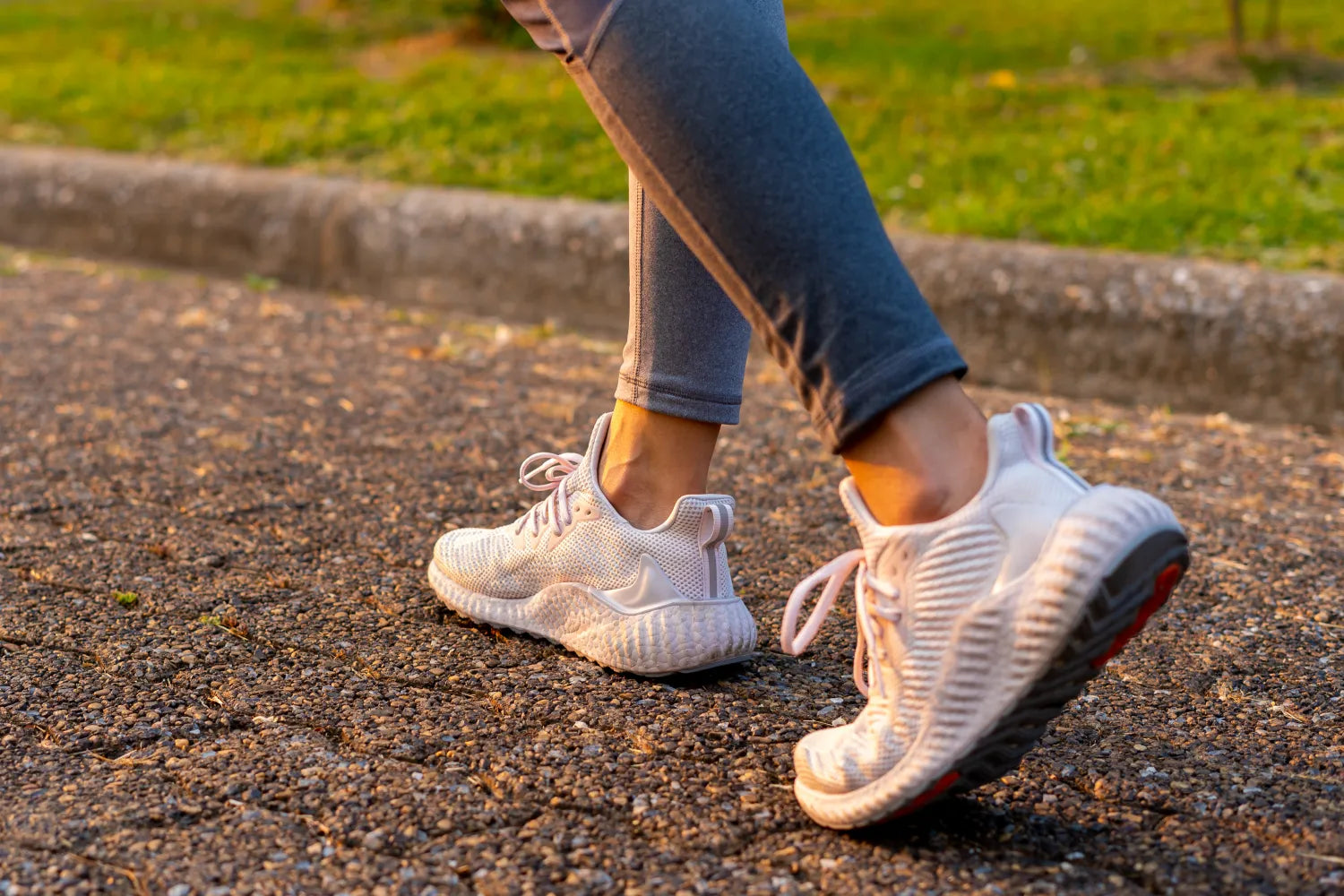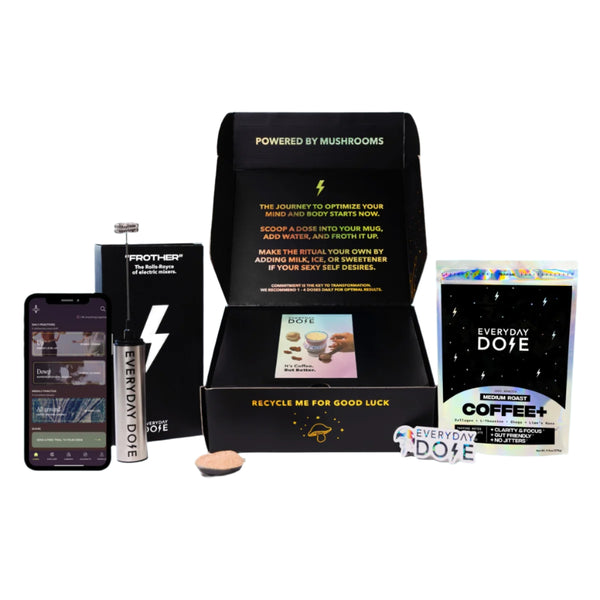Does Walking Help Digestion? Benefits of Walking After Eating

Have you ever experienced indigestion after eating a large meal? Heartburn and bloating don’t just come around on Thanksgiving — it can happen any time of the year if you eat something that’s particularly heavy or doesn’t agree with you.
In many cultures, taking a long walk after dinner is the social norm. Of course, this is much easier in walkable cities where you don’t have to immediately drive back home. However, there’s something to these common cultural practices.
Walking after eating can actually help digestion, which may help support your overall health in other ways, as well. Together, we’ll discuss the health benefits of walking after eating and explore other ways you can support your digestion.
What Are the Health Benefits of Walking After Eating?
You’ve probably already guessed that walking is good for you — but maybe you’re not quite sure exactly how it works. Here are a few specific ways your post-meal walk can support your health.
Improves Gastric Motility
Walking after a meal can improve gastric motility, which is basically just how long it takes food to move through your digestive system. When your gastric motility is slow, food can linger and your digestive tract can get backed up, which can lead to symptoms of indigestion.
These can include:
- Heartburn
- Acid reflux
- Constipation
- Bloating
- Nausea
- Feelings of heaviness or fullness
The digestive process can take anywhere from two to five days from start to finish, but there are certain things that can extend this process. For instance, fried or heavily processed foods can irritate the gastrointestinal tract and slow gastric motility.
Improves Post-Meal Blood Sugar
When you eat food, your body breaks it down and turns it into sugar. This sugar gets into your blood and is your body’s primary energy source. Normally, insulin helps move this sugar from your blood to your cells. However, if you’re resistant to insulin or have type 2 diabetes, your body might not be as effective at blood sugar management.
Taking a light walk after a meal (or engaging in any physical activity) can help lower blood sugar levels. Your body uses the blood glucose to fuel your activity, keeping blood sugar spikes to a minimum. This is especially helpful for glucose levels directly after a meal, also called postprandial sugar levels.
Can Assist With Weight Loss
Walking after a meal can also help burn calories, which can help with overall weight management. Of course, the same goes for any form of exercise, especially vigorous exercise like jogging or high-intensity interval training (HIIT).
This is yet another way that walking can support digestion since obesity can also be related to slow gastric motility and high blood sugar. If you’re specifically walking to lose weight, it doesn’t hurt to work with a nutritionist to make sure you’re also optimizing your diet for weight loss.
Supports Heart Health
Enjoying a brisk walk can also help support overall heart health. The exercise causes your heart rate to increase in order to move oxygen around your body at higher rates.
Encouraging this extra blood flow can also lower blood pressure, risk factors for heart disease, and cholesterol. Plus, this light cardio is incredibly easy to do and requires no special equipment — all you need is your body and some headphones if you like to listen to music or podcasts.
Supports Mental Health
Exercising can also release endorphins, which can support overall mental health. Walking can improve symptoms of depression, anxiety, and overall stress, which can be huge for digestion — after all, the brain plays a big role in digestion, and stress can significantly slow gastric motility.
To make your walk as relaxing as possible, try choosing a quiet location outside where you can get some sun and enjoy some scenery. You might listen to music or put on an audiobook to help pass the time. Or, you can meet a friend for your walk, which can be a great way to further support mental health.
What Type of Walks Should You Go On?
You don’t have to walk for hours to experience the benefits we listed above — in fact, you don’t even have to walk for one hour. All you need is a brief, 10-minute walk to feel lighter mentally and physically.
If you’re not used to walking, starting with short walks can be a great way to get your body familiar with the exercise. As your body adjusts, you can slowly ramp up your time, building up to 30-minute walks. When you walk, make sure you’re moving briskly, aiming for moderate-intensity exercise.
While a couple minutes of walking can do you good, even something as simple as standing after eating can help with digestion. This is because your gut has room to move and gravity can do part of the work.
How Else Can You Support Digestion?
Walking can support your digestion, but it’s far from the only tool in your health-supporting toolbox. Here are a few other ways you can encourage healthy digestion:
- Drink water
- Try herbal teas like peppermint and ginger
- Stand throughout the day
- Get plenty of sleep
- Manage stress
- Avoid irritating foods
Another way you can support digestion is by trying functional coffee. Our Mushroom Coffee+ blend is made with collagen to support your gut lining, lion’s mane to encourage detoxification, chaga to support your gut microbiome, L-theanine to support healthy stress levels, and coffee extract to encourage focus. Making it is as simple as brewing a normal cup of joe, and it’s just as delicious.
Sum It All Up
Digestion is an important part of overall well-being, so it’s important to do what we can to support it. Walking after eating is just one thing we can do to support digestion, along with drinking water, getting plenty of sleep, managing stress, and trying functional coffee.
At Everyday Dose, we know just how important gut health is for overall health. That’s why our mushroom blends are designed to support the gut on multiple fronts, such as by supporting feelings of relaxation. To learn more about the benefits of mushroom coffee, visit our blog today.
Sources:
Depression and anxiety: Exercise eases symptoms | Mayo Clinic
Stress and The Sensitive Gut | Harvard Health Publishing
Walking for Heart Health | Mass General Brigham
Gastric emptying during walking and running: effects of varied exercise intensity | PMC
Taking a walk after eating can help with blood sugar control | UCLA Health
Start your day
The Right Way









